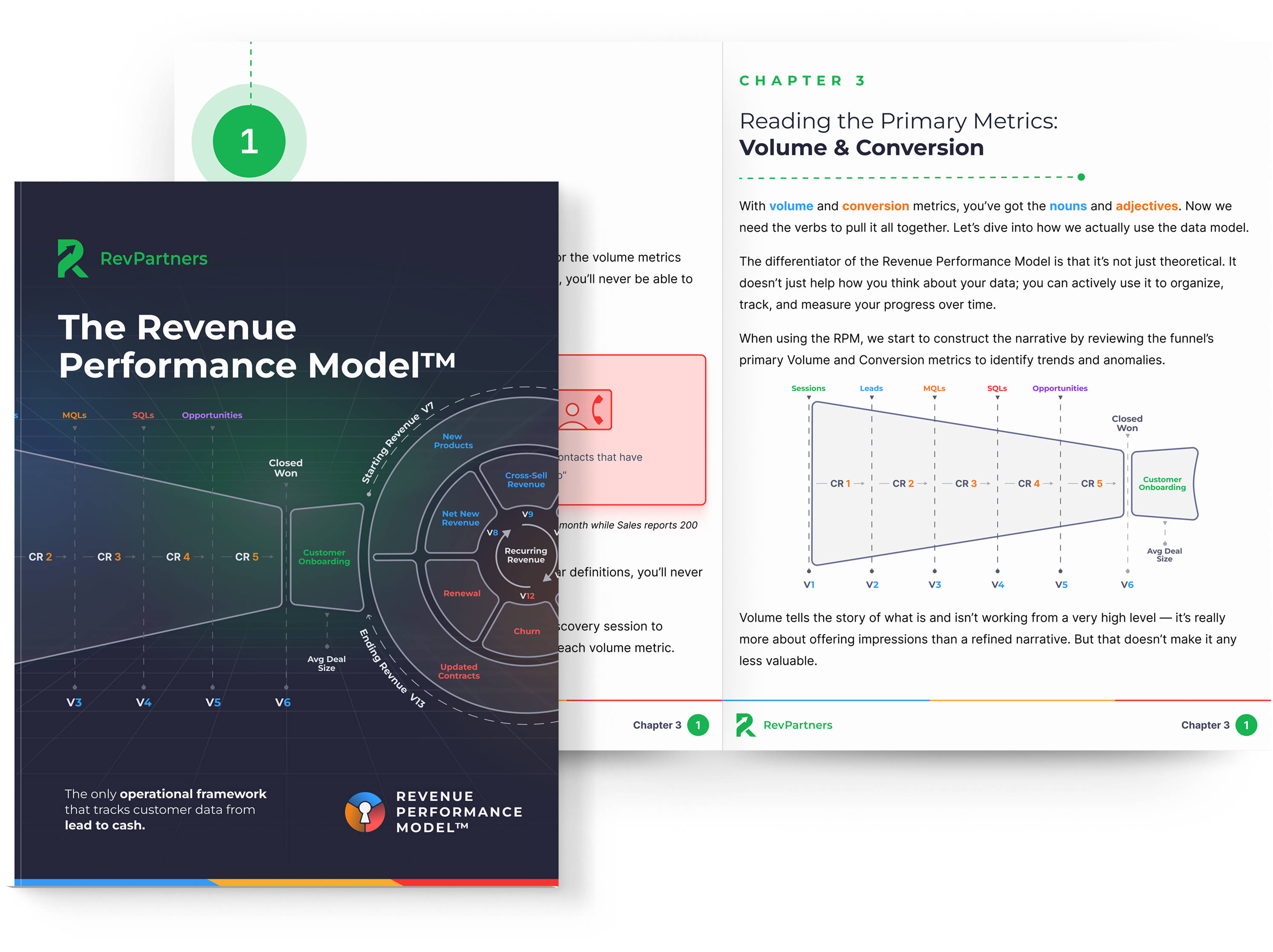Table of Contents
Tried and Tested Playbook to Identify & Hire Professionals Who Master the RevOps Force
Introduction
In the past 18 months, Revenue Operations titles increased by 300%. We all want RevOps professionals - fabled Jedis that can do strategic planning and technical implementation.
The Rise of the Strategic Technician results from more complexity, more data, and less clarity between all functions that impact the Buyer's Journey - Sales, Marketing, and CS.
But how do you know if someone masters the RevOps force? And what is the force anyway?
In this article we will answer the questions: What makes a strong RevOps Professional? And how do you test for those qualities in the hiring process?
The Problem
As the demand for RevOps Professionals increases steadily, there is still so much ambiguity surrounding how to find these fabled Jedis and practical questions circulating around:
Structure - What should RevOps look like in my organization?
Locate - Where do I find RevOps talent?
Test - How do I know they can do the job?
Train - How do I get better at RevOps?
Well, luckily, you’ve come to the right place. THIS is exactly what we do. And we’re sharing with you some of the playbook for building a RevOps Team and how to test its effectiveness.
Let’s start at the top.
The Structure
The RevOps Team
What does a RevOps team do? Eliminate Friction!
How do they do it? By fulfilling these 4 functions:
Create Strategy
Create Process
Create Clean Data (Behavioral + Data)
Visualize/Translate Data
What sets RevOps Teams apart from other operations functions is their comprehensive expertise in all SalesOps, MarketingOps, and CXOps, not just one area. This is why we call them Jedi. All these abilities combined are a true force.
The RevOps Pod
At RevPartners we structure each of our teams into units we call “Pods”.
In each Pod you’ll find:
- A RevOps Strategist
- A Systems Admin (Technologist)
- A Data Engineer
This is our ideal mix for supporting our partners with all motions involved in designing, building, and executing revenue engines that take them further, faster.
But, for now, we will focus on that first hire - the coveted “pink unicorn” that most executives are seeking - the RevOps Strategist.
Here is what makes them so rare that they can now be considered the new competitive advantage for scaling companies.
RevOps Strategist/Jedi Characteristics
Data Native
Relational Database
Visualize Data Structure
Fundamental of Data
Clarity Creator
BLUF(Bottom Line Up Front) / Strategy
Map / Draw Processes
Organized / Note Taker
Creates Forward Momentum
Drive Decisions / Challenges
Make Recommendations
Dates, Times, Owner
Testing: The Pink Unicorn / RevOps Jedi
The Hard Reality: Few meet the requirements for this role. First, they HAVE to be an expert in all Ops. They need to display the key characteristics we just covered.
Question: How to create a hiring process that test for:
Current: Competency + Expertise (Ops)
Future Potential: Ability to Learn
Intangibles: Driver / Bias Towards Action
The RevPartners Hiring Process
What is in it?
Application: 80% pass rate
Screening Interview: 50% pass rate
Mock Mapping Session: 60% pass rate
Mock Weekly Sync: 80% pass rate
Reference Check: 90% pass rate
Culture Interview: 90% pass rate
The “meat” of the application process is focused on the screening interview, and mock sessions. Many applicants will look qualified on paper or may be able to verbally articulate revops, but the practical, day-to-day skill set needed for weaponizing data - that’s a different story.
As mentioned briefly above, we look for both current competency AND future potential. This is key. It’s important to create a hiring system that allows for growth and identifies the applicant's ability to learn. More on that in a bit…
The Screen: Interview #1
The first interview is your standard interview structure that I’m sure you are familiar with.
Purpose: Start to align with scorecard (1-3 Hours)
Who: Only A Players
Pass Rate: 40% of Candidates
Questions: 4 Questions
-
What are your career goals?
-
What are you really good at professionally?
-
What are you not good at or not interested in doing professionally?
-
Who were your last five bosses and how will they rate your performance on a 1-10 scale when we talk to them?
What We're Looking For:
An alignment with our Core Values, the driving force behind RevPartners.
100% Stewardship: Do they act like owners and improve what they are given?
Fail Forward: Are they biased for action and not afraid to fail?
Forward Momentum: Is their natural bent towards action, not passivity?
Do Your Best, Not Your All: Do they value the harmony between work and rest?
Clarity Creator: How do they describe what they do?
Servant’s Heart: Do they live and give generously?
Mock Overview
Following the initial screening interview, candidates are then given scenarios to replicate with instructions.
Structure
Give The Tools: Provide training materials and guides for success
Scorecards: All mocks have scorecards
Thresholds: Not looking for perfect -> looking for about a required + threshold
Two People: Always ran by two people -> grades are averaged
Instant Feedback: After interview -> say whether passed or failed
Specifics: Give specifics of why good or bad based on scorecard
Infinity Repeatable: If did not pass, ability to repeat.
What We’re Looking For
What They Do:
Current vs Potential: Ability to repeat. Did they learn from their mistakes?
Preparation: Requires doing something new
Ops Knowledge: Can flex operation knowledge
Passability: Can pass without operations knowledge
Traits: Test for Clarity Creator + Forward Momentum
What They Don’t Do:
Train vs. Teach: Data Native
Mock Mapping: Interview #2
Purpose
Pass Rate: 60% of Candidates
Testing
Current: Operations Knowledge / Clarity Creator
Potential: Learning New / Personality
Scenario
Real Situation: Use past client -> deconstruct real past mapping
Example - Mock
Overview: Matt and Andrew are the leaders, CEO & CRO respectively, of Clown’s-To-Go, a local provider of Clowns for children's birthday parties and other events. Clowns-To-Go has experienced tremendous growth over the first 3 years of existence & the two leaders are having trouble keeping up with the pace of business growth & digital transformation.
Objective: Your objective is to meet with both owners & map out in real time either their current Marketing or Sales operations flows to understand where bottlenecks currently exist & understand all of their revenue driving initiatives.
Goal: The goal here is helping these owners take a process they know inherently, visualize their revenue flows during the meeting, and highlight areas of opportunity that you see.
Preparation
Mapping: If you are not experienced in mapping a companies revenue map, below are some RevPartners best practices to help you during this mission:
Training: Internal RevPartners Training video- Link
Example: Live Example w/ Matt- Link
Expectations
Share Screen: Share screen & verbally walk the owners through the process of where you are starting and ending
Miro: Use Miro
Scorecard: Process & Knowledge
Process
-
RP Format
-
Setup Prior to Meeting
-
Map while talking
-
Deliberately late
-
Use Decision Boxes
-
Delays Decisions
Knowledge
Sales Ops
Holding Stages
Marketing Ops
SEO / SEM Issues
Database for Email List
Example Score Card
Mock Weekly Sync: Interview #3
Purpose:
Pass Rate: 80% of Candidates (repeated more often)
Testing
Current: Project Management / Forward Momentum
Potential: Amount of Preparation / Can ID Key Decisions
Scenario: Scenario based
Real Situation: Weekly Sync - most common interaction with partners
Example: Mock Weekly Sync
Overview/Objectives: you’ll need to lead a 25 minute weekly meeting with both owners to accomplish the following objectives:
Priorities: Update both owners on the Prioritization & high level timeline of Epics (Projects)
Progress: Review progress made over the past week and the plan for the upcoming week
Decisions: Drive to a decision needing to be made related to the project
Where to get Information: Prioritization of Epics should be based on what you learned about the company during the mapping session, but feel free to make up the tasks and pending decisions sections.
Preparation: To assist you, below are RevPartners best practices for leading meetings:
Expectation:
Share Screen, make recommendations, & take notes
All tasks must include a what (task), who (responsible), and when (date)
Send a recap of tasks and decisions made immediately after
Helpful Links:
How to Run a Meeting Deck- Link
Training video from Matt on how to effectively run a meeting
We recommend not using ClickUp as it will make this exercise more difficult
Timing: You will have 25 minutes to complete this session and 5 minutes for questions/feedback/comments afterwards. Please schedule 30 minutes with us using this link.
Scorecard: Process & Knowledge
Required
B.L.U.F
Drives Decisions
Bonus:
Clarity Creator
Endstate / Frame
Recaps throughout meeting
Forward Momentum
Interrupts when off topic
Task have date/time/owner
Example Score Card
The Revenue Performance Model
Do you want to track the entire revenue journey in your CRM so you can see what's broken, why it happened, and where to fix it?
Download the Revenue Performance Model HERE


.png)
.png)
.png)
